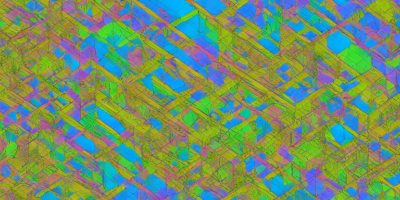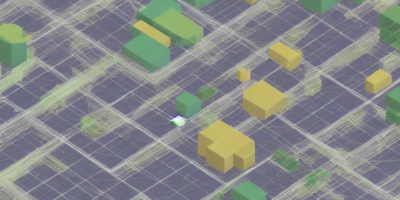In recent years, there has been a growing concern about the robustness of cognitive autonomous vehicles (CAVs) against adversarial attacks. These attacks exploit the vulnerabilities in the decision-making process of CAVs by manipulating their sensory inputs to cause unintended behaviors. This article proposes a novel approach to improve the adversarial robustness of CAVs by incorporating a new type of cognitive function called "adversarially resilient CBFs."
CFBs (Cognitive Function Blocks) are the building blocks of CAV decision-making processes. They represent the rules and constraints that an agent uses to reason about its environment and make decisions. However, CFBs can be vulnerable to adversarial attacks, which can compromise their effectiveness in certain situations. The proposed approach, called "adversarially resilient CBFs," aims to address this limitation by designing CFBs that are more robust against adversarial manipulations.
The authors propose a novel method for generating adversarially resilient CFBs using a combination of machine learning and formal methods. They use a variety of techniques, such as data augmentation and generative models, to generate a diverse set of CFBs that can withstand adversarial attacks. These CFBs are then integrated into the decision-making process of CAVs to improve their robustness against adversarial attacks.
The proposed approach is evaluated using simulations and real-world scenarios. The results show that adversarially resilient CFBs can significantly improve the robustness of CAVs against adversarial attacks, reducing the likelihood of unintended behaviors caused by these attacks. This work provides a valuable contribution to the field of autonomous vehicle safety and security, demonstrating the feasibility of using adversarial training to improve the resilience of CAV decision-making processes.
In summary, this article proposes a novel approach to improve the adversarial robustness of cognitive autonomous vehicles by incorporating adversarially resilient CFBs into their decision-making processes. The proposed method combines machine learning and formal methods to generate diverse and effective CFBs that can withstand adversarial attacks, reducing the likelihood of unintended behaviors caused by these attacks. The work provides valuable insights and contributions to the field of autonomous vehicle safety and security, demonstrating the potential of using adversarial training to improve the resilience of CAV decision-making processes.
Mathematics, Optimization and Control
Evolving C-CBFs for Warehouse Robots: A Practical Approach to Safe Control Synthesis



